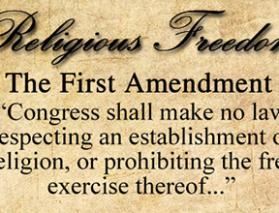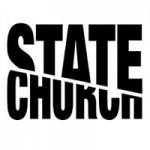By Ashleigh Bugg

In the heart of Texas cattle country, families gather from around the world. They come from various backgrounds. Some were born in camps on the border of Bhutan and Nepal. Others grew up on family compounds in Iraq or lived in countries in East and Central Africa. Despite their diverging routes, everyone comes with a dream — a good life for their families.
What determines a good life? For most of these, it is freedom from fear. With the global refugee crisis reaching numbers not seen since World War II, millions of neighbors are on the move. They are settled in various border countries or resettled by governments in Australia, Canada and the United States, where California and Texas resettle the largest numbers.
For Cooperative Baptist Fellowship field personnel Karen Morrow who serves in Fort Worth, Texas, welcoming new neighbors is not just good hospitality, but a moral obligation. Although some state officials have expressed fear of new arrivals, Morrow warned against this type of thinking.
“To serve Christ anywhere in the world today, we’re going to have to overcome those fears,” Morrow said. “The best thing is to point people to scripture: ‘Welcome the stranger who is living among you.’We have a call to serve the widows and orphans and those without.”
Morrow helps refugees learn to live in their new communities, working with multiple organizations including World Relief and Catholic Charities. Her most recent project is a Ready for School program, partnered with local nonprofit Literacy Connexus. The program works with three- and four-year-old preschoolers and their parents whose native language is not English. During the program, they are taught basic skills necessary to begin school.

“We teach colors, shapes, numbers, counting, sorting and basic physical skills,” Morrow said. “Skills that would not be normal within some populations’ cultures but are needed to enter school.”
The program is funded by a grant from the Miles Foundation and has been expanded to include three apartment complexes in the Fort Worth area. Morrow also leads a local Iraqi women’s Bible study and has recently started an Afghan women’s group for conversational English. Twelve women are participating in the class and Morrow is eager to see how it develops. She also partners with two Congolese congregations, including the Pentecost Holy Kingdom Church, and works with refugees from Bhutan, Myanmar, Syria, Sudan, Burundi, Somalia and Ethiopia.
Morrow’s work with those fleeing their homeland began long before her coming to Fort Worth. Before returning to the U.S., she was living in Germany, working with her husband Frank through CBF’s Middle East team to minister to an unreached people group who were asylum-seekers. While in Germany, Morrow and her family were expected to learn the language and assimilate into German society. This experience helped Morrow gain insight into some issues refugees face.
“It’s knowing what it’s like to have a sick child, needing to go to the doctor and having to cross that culture, and not knowing how to communicate what is wrong with your child,” she said. “There is a loss – a stripping of’who am I?”‘
Along the way, German friends worked with Morrow and her family as they learned to adapt to a new place.

“You’re unable to perform some of the most basic tasks; you have to take your mail to the neighbor to be read,” she said. “We had to do these things. We had no other option.”
Morrow has empathy for the struggles new arrivals face; she also has hope.
“I know what’s possible. I know the children will do well,” she said. “I watched my children go through some of the same struggles refugee children are going through, and they succeeded.”
Morrow believes her time overseas prepared her to return to her country to walk alongside others.
“I think God uses everything in our lives to prepare us for the next step of ministry that God has for us,” she said.
After returning to the States, the Morrows realized that traveling back and forth to other countries was impractical and kept them from being as effective in their work.
“CBF said to look around and see what other ministries were needed in the work God was already doing,” Morrow said. “The number of refugees in the United States was increasing. Not many churches at that time were involved; it seemed to be a real need.”
Working with Burmese and Bhutanese refugees brought the Morrows into the world of resettlement – a difficult process that can take years of waiting and often separates families.
According to the White House website, refugees undergo more rigorous screening than anyone else allowed into the United States. This process can take years once they identify themselves to the United Nations High Commissioner for Refugees (UNHCR – the U.N.’s refugee agency) and includes filing necessary documents, iris scans for those from the Middle East and multiple interviews and security checks. Only applicants who are strong candidates for resettlement move forward, fewer than one percent of the global refugee population. If they are chosen, they must undergo screenings from multiple governmental agencies including the National Counterterrorism Center/Intelligence Community, the Federal Bureau of Investigation, the Department of Homeland Security and the State Department.
Next, they must undergo an interview with the Department of Homeland Security/USCIS and have further biometric security checks. Medical checks and cultural orientation follow if they make it through the rigorous vetting process.

Morrow emphasized that fear of refugees is not only unfounded but unproductive to meaningful ministry.
“I think we are allowing our nationalistic tendencies as well as our fear for personal safety and security get the best of us,” Morrow said. “I don’t think scripture guarantees that for us as Christians.”
She encouraged believers to be aware of those who need help in their communities.
“I don’t believe we can resettle the whole world, but I think we have to be a part of the solution. Refusing to pay attention and holding our heads in the sand are not going to change that,” she said.
According to Morrow, being part of the solution includes aiding those who are still in war zones as well as promoting reconciliation overseas and at home.
“We should be peacemakers in those parts of the world where there is no peace,” she said.
Morrow understands that she cannot tell people what to think about the refugee crisis; she simply points them to scripture.
“I think God’s heart is with the refugees. God’s heart is with those who have lost everything,” Morrow said. “I don’t stand here to try to convince you to one way or the other. I just ask you to read scripture and ask the Holy Spirit what your response should be.”
MORROW SUGGESTS SEVERAL WAYS TO WELCOME NEIGHBORS:
EDUCATE: Educate yourself on who refugees are. Resettlement agencies have wonderful resources online.
PAY ATTENTION: Look to major cities around you; people are being resettled throughout the United States. See what resettlement agencies are in your area.
PROVIDE: You might not be able to serve physically but there are many things refugees need. Provide welcome baskets, household items, baby things and furnishings for the home. These things support the work already being done by agencies, churches and nonprofits.
SUPPORT: Support CBF field personnel like Alicia and Jeff, or international partners like World Relief, who are on the front lines of the crisis. Look for reputable agencies run by locals. Sometimes money is the best thing to give because it’s supporting a work locally and globally.
PRAY: Pray for the refugees as they make the journey. Pray God will change the hearts of our leadership in regard to helping refugees.
BE AN ADVOCATE: Around the water cooler at work, or the coffee pot, speak in favor of welcoming refugees. Use your political power to vote in favor of refugees.
Volunteer with resettlement agencies or other churches already doing the work.
CHECK OUT RESOURCES:
UN Refugee Agency – www.unrefugees.org
World Relief – www.worldrelief.org
International Rescue Agency – www.rescue.org












